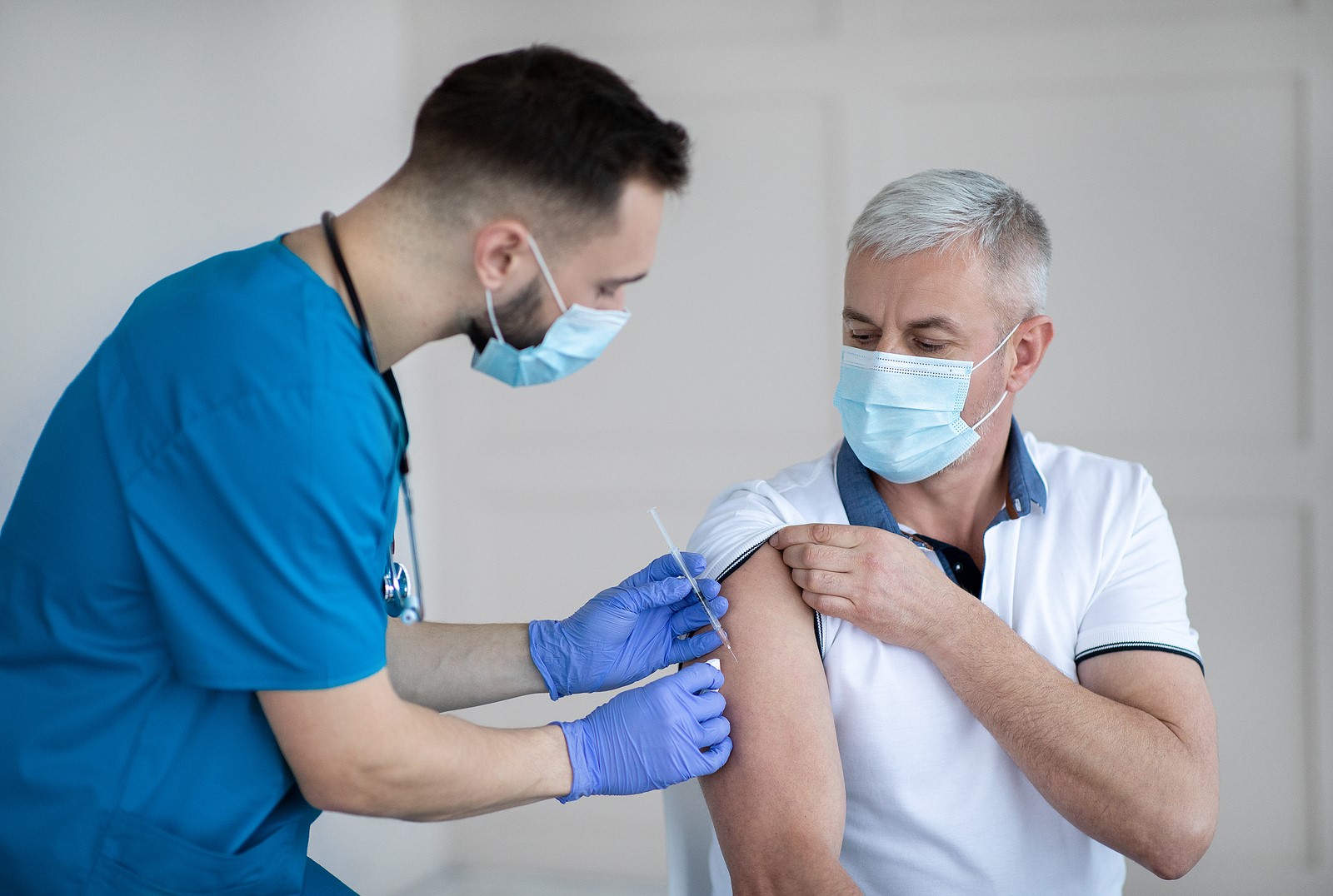
We are just now learning about the efficacy of a booster shot in preventing the onset of COVID-19. As the pandemic continues to be a global concern, vaccination has been the best tool in the fight against the virus. Right now, the big question on the minds of health experts is whether a COVID booster shot is needed.
What Is a COVID-19 Booster Shot?
A COVID-19 booster shot is an additional dose of the vaccine given after the protection provided by the original shot or shots of the vaccine begin decreasing over time. The booster shot can help people to maintain their immunity level for a more extended period. (Johns Hopkins Medicine, 2021)
Why Do You Need a COVID-19 Booster Shot?
According to the Centers for Disease Control and Prevention (CDC), studies have shown that protection against the virus may decrease over time. The vaccine alone may also offer less protection against the Delta variant.
In adults aged 65 years or older, the COVID-19 vaccination has proven effective in preventing severe disease. However, according to recent data, vaccination has been less effective at preventing infection or milder illness with symptoms.
Another critical factor is that in the case of healthcare and frontline workers, the vaccine effectiveness against COVID-19 infections is reducing over time. The lower vaccine effectiveness is a combination of decreased protection over time since getting vaccinated and the increased infectiousness of the Delta variant. (CDC, 2021)
Eligibility
According to the latest information from the CDC,
- If you have taken the Pfizer-BioNTech or Moderna vaccine, you are eligible for a booster if you are 65 years or older, if you are 18 years or older and are living in long-term care settings or if you have any underlying medical conditions. Those who are 18 years or older and who are working or living in high-risk settings are also eligible for the booster. The booster must be taken at least 6 months after the completion of the primary COVID-19 vaccination series.
- If you have taken the Johnson & Johnson’s Janssen vaccine, you are eligible for a booster if you are 18 years or older. The booster must be taken at least 2 months after the shot.
The Difference Between an Additional Dose and a Booster Shot
Some people may not know that an additional dose and a booster shot are not the same.
An additional dose is identical to the first two doses of the vaccine. In mid-August, the Food and Drug Administration (FDA) approved a third dose of the Pfizer-BioNTech or Moderna vaccine for people with moderately or severely compromised immune systems. This may include people who have advanced HIV infection or those who are receiving active cancer treatment. It may also include those who have received an organ transplant and take medication to suppress the immune system.
People with compromised immune systems may not have got the level of protection that they need from the first two doses. The additional or third dose provides that level of immunity. The additional dose of the vaccine must be administered at least 28 days after the second dose.
On the other hand, a booster shot is recommended as the effectiveness of the vaccines may reduce over time. Due to this, the person may not be adequately protected against a new strain, such as the Delta variant. (MacMillan, 2021)
Can You Mix and Match Vaccines?
Suppose the vaccine given for the first two doses is unavailable or unknown. In that case, any one of the COVID-19 vaccines may be administered. It’s important to remember that no person must receive more than three doses of the COVID-19 vaccines.
Yes, you can mix and match brands. The COVID booster or the additional dose doesn’t have to be of the same brand. Currently, the FDA has authorized three vaccine boosters – Pfizer-BioNTech, Moderna and Johnson & Johnson’s Janssen. It is determined that it is safe to get an additional dose or a COVD-19 booster that is a different brand than the initial dose or doses. It’s important to note that if you get the Moderna booster, you will receive half of the original Moderna dose. You must confirm this with the person giving you the shot. (Johns Hopkins Medicine, 2021)
The process of revising and expanding booster recommendations is based on review and analysis continues. The FDA and CDC are working in this direction to share their recommendations based on ongoing research. Boosters play a massive role in protecting individuals. However, we must remember to increase our efforts to ensure that those not vaccinated get vaccinated as early as possible.
Works Cited
Johns Hopkins Medicine. “Booster Shots and Third Doses for Covid-19 Vaccines: What You Need to Know.” Johns Hopkins Medicine, 2021,
CDC. “Who Is Eligible for a COVID-19 Vaccine Booster Shot?” Centers for Disease Control and Prevention, Centers for Disease Control and Prevention, 2021,
www.cdc.gov/coronavirus/2019-ncov/vaccines/booster-shot.html.
MacMillan, Carrie. “Do You Need a COVID-19 Booster? What We Know so Far.” Yale Medicine, Yale Medicine, 27 July 2021,
